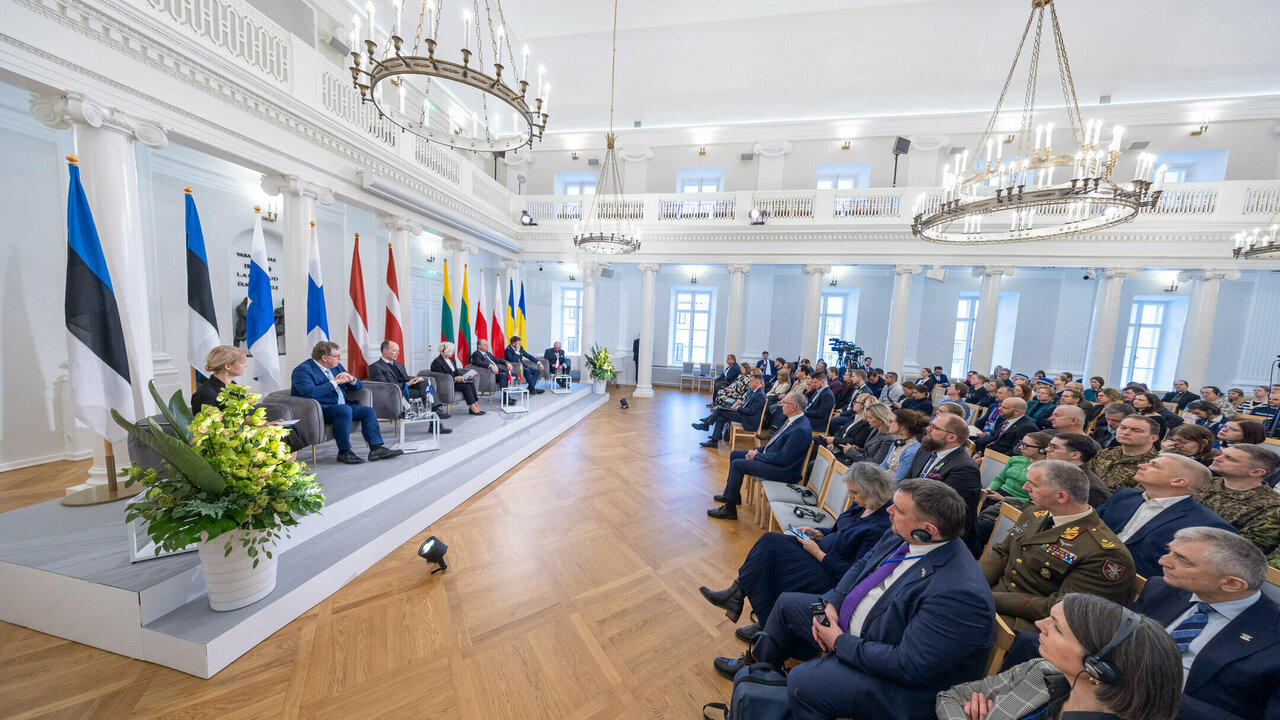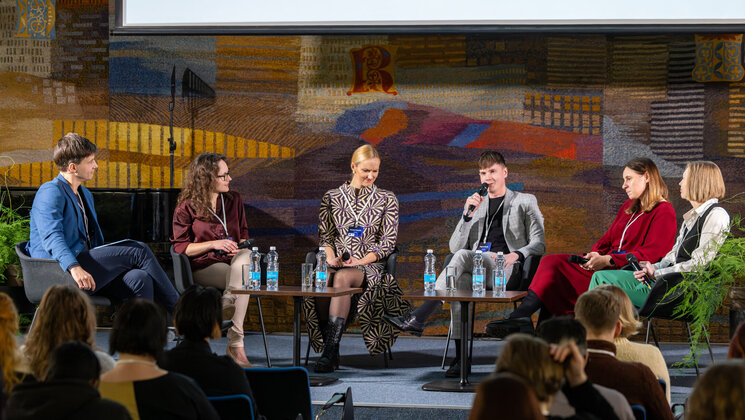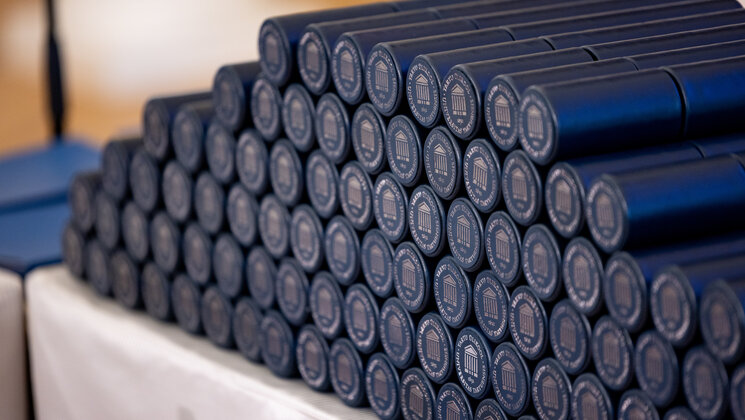We must learn from Tartu Peace Treaty to ensure just and lasting peace in Ukraine

Parliament speakers of five countries who met to mark the 105th anniversary of the Tartu Peace Treaty discussed what kind of a peace treaty is needed to end the war and attain lasting peace in Ukraine. They also talked about the universities’ role in ensuring lasting peace.
The moderator of the meeting, Professor of Comparative Politics Piret Ehin admitted that a treaty in itself means nothing to Russia – the Tartu Peace Treaty was also broken already a few decades after it was signed.
Ukraine was represented at the discussion by Maksym Kononenko, the ambassador of Ukraine to Estonia, who said that the war with Russia is an existential conflict for Ukrainians. If they lose the war, the nation ceases to exist. Thus, it is vital to make sure that Russia would not be able to impose a “new Molotov–Ribbentrop Pact” that would ignore Ukraine’s territorial integrity. “We have formulated our vision – increased sanctions and isolation of Russia, as well as increased military support for Ukraine. Another key component is a solid long-term security guarantee for Ukraine. Estonia did not get it after the War of Independence and lost its independence again in 1940,” said Kononenko. He also emphasised that the strategies the allies have taken so far have not worked for Moscow in the past, which is why resistance must be forceful to end hybrid attacks on the Baltic Sea and elsewhere.
The President of the Estonian Riigikogu Lauri Hussar pointed out that the Nordic countries, Poland and the Baltic states together are the second-biggest supporter of Ukraine after the United States. It is a very special coalition that is standing firmly behind Ukraine. “The main message of the Tartu Peace Treaty is that peace under our conditions is possible. After all, we have seen several times what Russia is like at the negotiations table,” he said. To make peace talks possible, Ukraine should get as much support as possible to build up its military capabilities, for example, with drones. Ukraine knows best what kind of support is needed, and we need to listen to what they say. In addition, economic pressure on Russia must be considerably increased.
According to the speaker of the Finnish parliament Jussi Halla-aho, Putin needs to be given the message that we will outlast him. Declarations and big words are not enough; we need the physical ability and capacity to produce ammunition and weapons, both for our own defence and for helping Ukraine. “There has been much concern in Europe about what kind of an impact President Trump’s re-election might have on the US commitment to the defence of Ukraine. We will have to cooperate with any president, but the real problem is not the United States but our utter deep reliance and dependence on the Americans. We must do more to defend ourselves,” Halla-aho said. He also spoke about the need to prevent the next war. “To prevent new aggression, Ukraine must have credible security guarantees. At the moment, NATO is the only one that can provide it. We must work hard together to create a pathway for Ukraine into NATO membership,” he said.
Speaker of the Latvian Saeima Daiga Mieriņa emphasised that Ukraine must be able to participate in peace talks and make decisions on the peace conditions. Ukraine needs help to make the best use of its military industry, and also the military sectors of the Baltic states, Poland and Finland need to be developed. New economic sanctions are required to weaken the Russian economy further. Particular attention must be paid to limiting the shadow fleet. Mieriņa pointed out that Russia and Ukraine have different values on the battlefield. “We should put more pressure on the Russian opposition to act. It is their moral responsibility to stand up to their authorities,” she said.
Speaker of the Lithuanian Seimas Saulius Skvernelis said we must not allow a frozen conflict to emerge. The prerequisites to achieving the peace treaty are that no agreements are made behind Ukraine’s back, the occupied territories are liberated, and the resettled people return to their homelands, Ukraine gets full membership of NATO, and Russia is held accountable legally, economically and militarily. To influence Russia, economic sanctions are needed that also affect ordinary people.
Marshal of the Sejm of Poland, Szymon Hołownia, who has visited Ukraine and seen the horrors of Bucha, said this is clearly not a struggle between two powers but a conflict between two worlds of values. “We shall not compromise our values. We are on the right side,” he said. According to him, it is also critical to increase and expand the unity and influence of the European Union. “We have to support the accession of Ukraine as well as, for example, Albania, Montenegro and other nearby countries to the European Union. We have to unite because a united Europe is Russia’s nightmare,” Hołownia added. To strengthen Europe, we need to develop the defence industry here so that 80% of the money spent on defence no longer leaks outside Europe. It is also important to develop the infrastructure here.
Following the discussion, Margit Sutrop, Professor of Practical Philosophy and a member of the Riigikogu, asked what universities could do to prepare for the lasting peace in Ukraine. Marshal of the Polish Sejm replied that the biggest task of universities is to show people the difference between price and value, as these terms tend to get mixed. “We are labelling everything with a price tag. Without values, it would be the end of our civilisation. We should look at the universities and their task in a pragmatic way, in a kind of profit logic. So that we see there is a real profit out of what you are doing here,” said Hołownia. Parliament Speaker Lauri Hussar noted that universities have an important role in research and development cooperation to develop the military industry and know how to face and tackle hybrid and social media attacks.
On 3 February, the speakers of the parliaments of five countries and the ambassador of Ukraine to Estonia Maksym Kononenko visited the University of Tartu. The speakers gave a press conference in the university assembly hall and held a public discussion on how to achieve a just and lasting peace in Ukraine and Europe.
Read more about the event on the university’s website.






